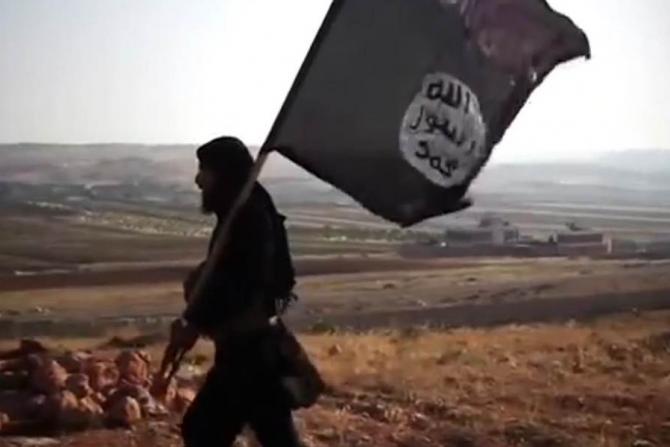Liz Hardaway, Transcript Reporter
When the Taliban launched the 9/11 attacks, the United States’ main goal at the time was to eliminate al-Qaida and Osama bin Laden.
This tunnel vision prevented the recognition of an even more extremist jihadi group expanding in the shadows.
“We have just decided to go beyond crimes against humanity and label ISIS as genocidal,” said Michael Houlahan, a retired foreign services officer and the final lecturer at the Great Decisions lecture series held on March 18 in William Street United Methodist Church.
More than 75 community members gathered to discuss the origins and dynamics of the Islamic State of Iraq and Syria (ISIS), with many wondering what the U.S. plans on doing to stop the violent group.
Houlahan emphasized that Arab countries need to put Muslim Arab troops on the ground, but if the U.S. pulled out altogether, ISIS could run rampant.
“There’s no clear road to … protect the country,” he said. “It is a patchwork.”
Due to the unsuccessful efforts of the Arab Spring (democratic uprisings that took place in several Arab nations in 2011), the appeal to join ISIS has grown.
Many longtime rulers were removed from power, such as leaders in Tunisia, Libya, Egypt and Yemen, and citizens were hoping this would lead to improvement.
As time passed and violence increased, however, citizens have become increasingly drawn to the idealistic Islamic State that ISIS promises them.
Abu Musab al-Zarqawi formed the first of many militant groups called Army of al-Sham in the late 1980s under the vision that ISIS has today, according to Houlahan.
The group was disbanded and Zarqawi was imprisoned in 1992, where he began attracting and leading other inmates.
When Zarqawi was pardoned, he came into contact with al-Qaida, which was initially wary and distrustful of Zarqawi. But the two cooperated so Zarqawi could form a training camp in Afghanistan to recruit new members.
Upon establishing a second group, Zarqawi ordered the bombing of the United Nations headquarters in Baghdad as well as a dual car bombing outside of the Imam Ali Mosque in Najaf, one of the holiest sites in Shia Islam, sparking a civil war between the country’s Shia and Sunni populations.
Zarqawi was killed by a U.S. airstrike in 2006, but his vision remained very much alive, Houlahan said. As the new commander, Abu Omar al-Baghdadi announced the establishment of an Islamic State.
Followers wanted to establish the state because they believed the apocalypse was imminent, but both Baghdadi and his head of state Hamid al-Zawi were killed in 2010.
Abu Bakr al-Baghdadi, who claims to be a direct descendent of the Prophet Muhammad became the new head of the Islamic State and continues to lead ISIS today.
“It is true that we have to finish off ISIS,” said Hatim Taj, a Shiite man who attended the lecture. “They won’t listen … but after that … you have to find people who are willing to sit down and have a political discussion or it will just get worse.”
